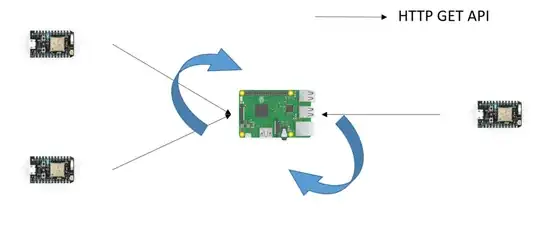I have the following hardware:
3 x Particle Photons. Each serve as an HTTP Server
1 x Raspberry Pi 3 which will serve as an HTTP Client
Upon requesting an HTTP GET to any of the the Photons, the API returns:
{
node: 1,
uptime: 1234556,
location: 'back',
sensor: {
Eu: {// Euler Angles from IMU
h: 0, p: 0, r: 0
},
La: {// linear Acceleration values from IMU
x: 0, y: 0, z: 0
}
}
}
I want to create a Polling scheme where the Raspberry Pi client performs an HTTP GET every 0.1 Second on each of the the 3 Servers.
I am not sure whether there is something like HTTP Polling and whether Asynchronous Libraries like Twisted by Python should be the one to be used.
I would like to gain some advice on how will a Multiple Server - Single Client model would function w.r.t. HTTP?
Reference
Each Particle Photon has the above mentioned JSON response to a HTTP GET Request.
The Raspberry Pi would serve as an HTTP Client, trying to get requests from each and every Particle Photons.
